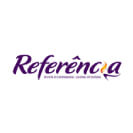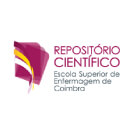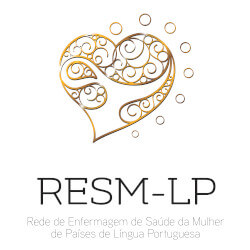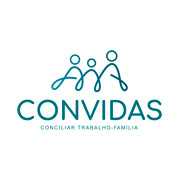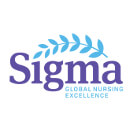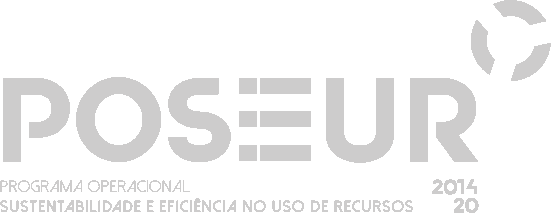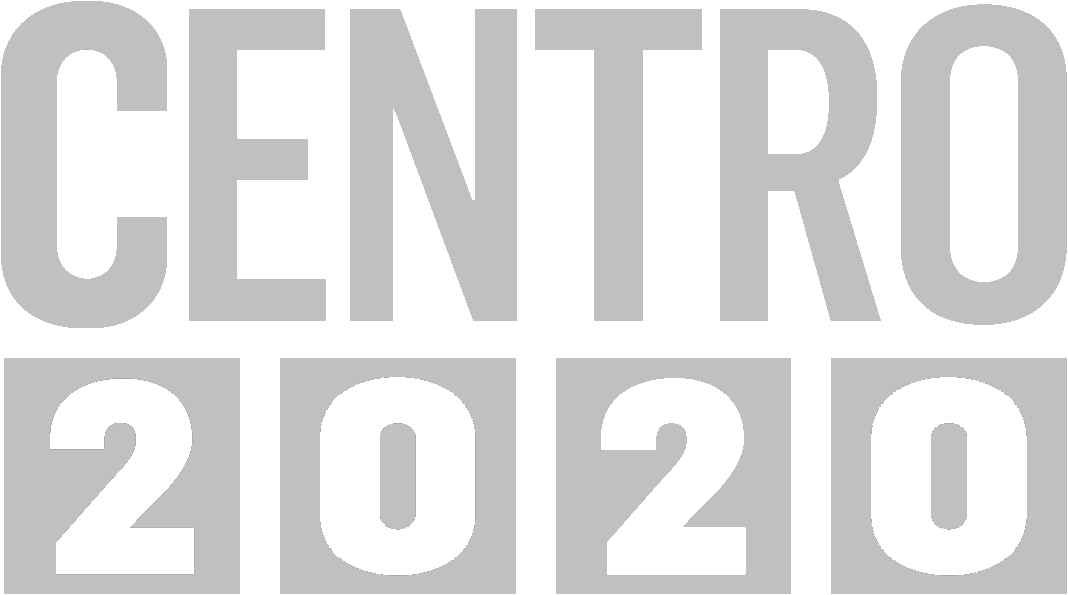REGULATION OF THE RESIDENCE HALL OF THE NURSING SCHOOL OF COIMBRA
PREAMBLE
The Residence Hall of the Nursing School of Coimbra (ESEnfC) has been designed to meet the accommodation needs of scholarship students from the Directorate General of Higher Education (DGES) who are enrolled in a course leading to a Bachelor's or Master's degree. The residence hall is intended for students who, due to their economic circumstances, need accommodation to continue their studies and who, due to distance or difficulty of transportation, cannot live with their household during the academic year.
The Residence Hall aims to provide accommodation during the period of academic activity and is committed to respecting the fundamental rights and freedoms of individuals, tolerance, promotion of a positive environment and healthy sociability, and favorable conditions for study and learning.
This can only be achieved through the establishment and enforcement of a set of norms and regulations that are necessary for the effective and equitable use of shared services and facilities by residents, as well as to ensure the optimal operation of the residence hall.
At the beginning of each academic year, 38 places will be reserved for first-year students, international students, students placed at ESEnfC under mobility programs, and ESEnfC students from Portuguese-speaking countries.
The Social Action Department of the Nursing School of Coimbra is responsible for the operational management of the Residence Hall. This includes regulating the application process for accommodation and implementing and developing the participatory management of residents. It is important to have this regulation in place, which all residents must adhere to regardless of the length of stay or their status. At the time of admission, a copy will be provided to the residents so that they are aware of this regulation and take responsibility for its implementation.
Section I
General Provisions
Article 1 – Scope and Purposes
- This Regulation applies to the ESEnfC student Residence Hall, hereinafter referred to as the Residence Hall, and to the students residing there.
- The Residence Hall is intended for students of the Nursing School of Coimbra. Priority is given to scholarship students from the School.
- Should any remaining vacancies exist, other students may be accommodated.
- The objective of the Residence Hall is to provide students with a welcoming and conducive environment that supports their academic success and social and academic integration.
- The objective of the Residence Hall is to provide students with a welcoming and conducive environment that supports their academic success and social and academic integration.
Article 2 – Type of Accommodation
- The Residence guarantees accommodation services:
- in a double room with a shared bathroom;
- in a double room with a private bathroom.
Both types of accommodation provide access to hot water, central heating, a study and/or common room, a self-service laundry service, and kitchens/lunchrooms for preparing meals.
The Residence Hall will be open between 1 September and the last working day of July the following year.
Article 3 – Person in charge of the Residence Hall
- The ESEnfC will assign the requisite personnel to operate the Residence Hall through the Technical Installation, Equipment, and General Services (STIESG).
- STIESG is responsible for the following:
- Welcoming the residents, together with the Residents' Committee, introducing the wing leader and other colleagues, making them aware of the Residence Hall's facilities and operating rules;
- Controlling all admissions and departures that take place at the Residence Hall and reporting them to Social Action, ensuring compliance with the internally defined procedures;
- Supervising the hygiene, cleaning and upkeep of the Residence Hall's equipment in cooperation with the wing managers;
- Ensuring the supply of materials and goods necessary for the normal operation of the Residence Hall;
- Checking the state of conservation, tidiness, and cleanliness of the students' rooms;
- Notifying Social Action of any individual support needs for residents, for appropriate referral;
- Deep-cleaning the common areas and rooms whenever they are vacant;
- Giving their opinion on disciplinary issues relating to residents, when justified.
SECTION 2
Access to the ESEnfC Residence Hall
Article 4 – request for Accommodation
1- The request for accommodation is made through a specific application available on the ESEnfC website.
2- There are three periods for application:
Phase 1: for students already attending the ESEnfC, from July 1 to 15;
Phase 2: for students who enroll for the first time at the ESEnfC after the results of the first application phase of the National Competition for Access to Higher Education and for 15 days;
Phase 3: for students enrolling for the first time at the ESEnfC after the results of the second application phase of the National Competition for Access to Higher Education and for 15 days;
Students already enrolled at the ESEnfC who apply outside the defined period will only be admitted after the end of the 3rd phase.
- Approval is granted by the vice-president responsible for Social Action and is valid for a maximum of one school year.
Article 5 – Accommodation Allocation
- Accommodation in the Residence Hall will be granted according to the following order of priority during the first phase of application:
- Students applying for DGES scholarships with a fully completed application at the time of applying for accommodation;
- Students with additional support needs who are enrolled and registered at ESEnfC in a course leading to a Bachelor's or Master's degree;
- Students with scholarships from other public institutions that provide this benefit;
- Students who do not have a scholarship, in the case of available places, with priority given to students who, cumulatively:
- Live farther away or have greater transportation difficulties;
- Have achieved academic success in the previous year;
- Are able to complete the course with a total of no more than 2 annual enrollments.
- Once all applicants who meet the above requirements have been placed, other applicants who are not displaced bursary students but who do not have environmental conditions conducive to good academic performance may be admitted.
- Loss of scholarship status, unless a space is available and the student can remain as a non-scholarship student, means loss of housing privileges.
- Accommodation is assigned on a first-come, first-served basis and is subject to availability.
- Students who have lived in the Residence Hall in previous years and who have a history of misconduct or problems adjusting to the shared living environment will not be allowed to live in the Residence Hall.
- Residents will be accommodated according to the availability of each room and may choose any of the available rooms to be filled.
Article 6 – Announcement of Application results
- Once the deadline for each application has passed, ESEnfC Social Action will notify applicants by email of the result of their application: placed, substitute, conditional, or rejected.
- After being informed of the result, the student has three consecutive days from the date of notification to express in writing whether or not they accept their place in the Residence Hall.
- Any appeal must be made in writing to the Vice President responsible for Social Action within five working days of the date of notification.
SECTION 3
Admission and Departure
Article 7 - Admission
- Admission to the Residence Hall implies a written agreement between ESEnfC and the resident student, signed after the acceptance of the vacancy, which includes the dates of entry and exit.
- Upon admission, the student will receive a copy of the contract, a copy of the regulation, and the keys to the room, which are personal and non-transferable.
- Married couples will not be admitted to the Residence Hall.
- Displaced scholarship students are entitled to a housing allowance from the DGES in accordance with current legislation.
- Displaced scholarship students who refuse to accept the accommodation offered to them in the Residence Hall or who leave the Residence Hall will lose their right to the housing allowance, in accordance with current legislation.
Article 8 – Check-in
- Upon admission, the student will be accompanied by the person in charge of the Residence Hall or their representative to inspect the Residence Hall facilities and check the condition of the room. The condition of the furniture and equipment for personal and common use, as well as the general condition of the room assigned to the student, must be recorded on a separate form, and the student is obliged to return it in the same condition in which it was received. The form must be signed by the student and by the person in charge of the Residence Hall, or by their representative;
- Arrival at the Residence Hall should normally take place on weekdays between 9:30 and 16:00, unless a different time is agreed upon with the person in charge of the Residence Hall, and is formalized by the signing of a contract between the resident and ESEnfC.
- Upon entering the Residence Hall, the student will be given the keys to the room and will be fully responsible for them and will not be allowed to give them to third parties.
Article 9 – Check-out
- At the time of departure, or when there is a change of room, the student and the person in charge of the Residence Hall or their representative must jointly check the state of repair of the goods and spaces and record it on a form, which they will both sign.
- The room and furniture will be inspected on the last day of the student's stay in the room, and check-out must take place on working days between 9.30 and 16.00.
- Requests to withdraw, anticipate, or extend departure from accommodation must be substantiated and addressed to the Vice-President with responsibility for Social Action at least 5 consecutive days before the intended date of departure. If authorized, the amount to be paid will be adjusted in accordance with the rule set out in Article 10(3). Authorization for an extension depends on availability.
- Displaced scholarship students who have applied for accommodation in the Residence Hall and have not been granted it, will benefit from a supplementary housing allowance in accordance with the legislation in force.
- If it turns out that the student is responsible for any damage, they will have to pay for it.
- The person in charge of the Residence Hall or their representative will notify the Social Action Service and the Accounting Service of the student's departure by e-mail.
- The student must hand in the keys to the room at the Residence Hall on the date of departure. The room will not be considered free until then.
SECTION 4
Fees and Payment
Article 10 – Payment
- The fees for scholarship students are established each year in accordance with Law 71/2017, of 16 August. Fees for other residents are set by the Management Board.
- The fee list is revised at the beginning of each academic year and is available on the ESEnfC website.
- The fee for each month is the lowest value of the sum of the nights of accommodation, considering the three types of price (per night, per fortnight, and per month).
- Residents should pay their monthly fee before the 15th day of each month. If accommodation starts after the 10th of the month, payment for that month is due on the 15th of the following month. Late payments will be subject to interest according to the ESEnfC's current rates.
- Students who have applied for a scholarship will automatically have a deadline of January of the second calendar year of the academic year to pay their housing fees.
- If they are awarded a scholarship, the first payment, which includes the monthly fees due, must be made in the month following receipt of the scholarship.
- Scholarship applicants who are rejected are required to pay the monthly fees in accordance with the room rate for non-scholarship students in the subsequent month.
- Accommodation is billed on a monthly basis. Please note that the month in question is paid in full during the months corresponding to the Christmas and Easter holidays.
- Students on national and international mobility (ERASMUS or other) are exempt from paying the residence fee for the period of absence, provided they do not request to give up their accommodation.
- Students engaged in clinical training outside the municipality of Coimbra and outside their area of residence who require accommodation in the area of the hosting institution and who are not DGES scholarship holders will also be exempt from paying the fee for the period of absence, provided they submit a request and do not request to give up their accommodation. This will be calculated from the commencement date of the mobility/clinical training period (excluding the integrative clinical teaching time) until the end of the mobility/clinical training period, in accordance with the rule defined in point 2 of this article for each month.
- It is the responsibility of the National and International Relations Office to inform the Social Action and Accounting departments of the period during which students are on mobility. It falls upon the Scientific-Pedagogical Office to apprise Social Action and Accounting of the duration of students' clinical training outside the municipality of Coimbra and beyond their area of residence.
- Accommodation fees may be paid via the following methods:
- a) By ATM reference, generated in the resident's current account and accessible on BUEC's personal page;
- b) Direct payment at the ESEnfC Academic Services;
- c) Other forms of payment that may be defined and implemented during the academic year by decision of the Presidency of the ESEnfC.
Article 11 – Failed Payments
In the event that a student fails to settle their accommodation fees for three months, they will not be eligible to receive their academic certificate.
Article 12 – Coercive Collection
In the event of non-payment of the monthly fees for accommodation in a given school year, the respective debt certificates will be issued in January of the following year and sent to the competent services for the purposes of tax enforcement proceedings under the terms of the law.
SECTION 5
Residence Hall Operations
Article 13 – Opening hours
- The Residence is open between 7 a.m. and 1 a.m., during the week;
- On weekends and holidays, it is open between 8 a.m. and 1 a.m.;
- The Residence is closed between 1 a.m. and 7 a.m.;
- During the night and after the Residence is closed, students who wish to enter or leave the Residence Hall should ask the receptionist to open the door or ring the bell.
- The Residence Hall is closed in August and reopens in September on a day to be decided annually by the Presidency.
Article 14 – Favorable environment
- The ESEnfC Residence Hall, in accordance with Decree-Law No. 14/2022, of 13 January, aims to:
- Provide adequate temporary housing for residents;
- To guarantee the well-being and quality of life of the residents;
- To make living together compatible with respect for the individuality and privacy of each resident;
- To promote coexistence, camaraderie, and community spirit;
- To promote a study environment conducive to academic success;
- To create a safe, comfortable, quiet and human environment;
- To promote the adoption of sustainable habits.
Article 15 – Residents’ Duties
All residents are required to:
- Be fully aware of and comply with these Regulations, as well as with any other applicable rules and regulations in force at the Residence Hall and with all relevant legislation.
- Pay the monthly fee in a timely manner.
- Assist in the integration of new members.
- Respect fellow residents by refraining from inappropriate acts that could disrupt the community.
- Elect and respect wing managers.
- Residents are responsible for maintaining the upkeep and cleanliness of the facilities and equipment in the Residence Hall. In the event of negligence in the use of property, residents will be held accountable for any damage caused.
- Contribute to the sustainability of the Residence Hall by reducing consumption of water, gas, and electricity.
- Respect the quiet hours from 11 p.m. to 8 a.m.
- If requested, provide access to and visit the room in question by the person in charge of the Residence Hall or an authorized person.
- Refrain from walking in their pajamas or bathrobes on the ground floor of the Residence Hall.
11) Treat each other and all staff with respect and politeness in all interactions.
- Obey all posted guidelines and notices.
- Should any equipment malfunctions or anomalies in the operation of the Residence Hall be identified, please notify STIESG.
- Remove all personal belongings at the time of check-out. Any unclaimed belongings will be donated to Social Solidarity Institutions 30 days after the date of notification.
Article 16 – Residents’ Rights
Each resident is entitled to:
- utilize the room and the shared complimentary facilities in their respective wing, which include the bathroom, pantry, and study room.
- use the kitchen of their corresponding wing to prepare meals.
- use the kitchens of other wings, provided they have the permission of the residents of that wing and are accompanied by the resident who granted permission.
- use the fridges and freezers in their wing to store food for personal use.
- install their own television and computer in their room for personal use.
- use the lounge, study room, laundry room, study room, and wellness center, as well as other facilities intended for their use.
- use the wireless Internet, provided they do not tamper with the equipment installed for this purpose, namely the wireless antennas. Access may be restricted in the event of copyright infringement.
- access the study room for 24 hours a day.
- elect and be elected as Resident Wing Manager.
- appeal to their wing/floor manager, the person in charge of the Residence Hall, or the Social Action Office to resolve any problems related to their accommodation.
Article 17 – Laundry
1.Residents have the right to 2 bed sheets and towels, if the students wish so, and cleaning of the room during the summer and Christmas holidays.
2.Residents may use the iron and ironing board, as well as the washing and drying machines, located in the areas specifically designated for the care of personal and bed linen, in compliance with the standards established for this purpose.
3.Residents may use the laundry room of the Residence Hall upon payment of the fees established by the ESEnfC presidency. The use of the laundry room is only for the treatment of their personal and bed linen and must be done in accordance with the guidelines established for such use. The fees are displayed in the laundry room and on the ESEnfC website.
Article 18 - Visits
- Access to the floors is restricted to the residents and the staff, except for special permission. Parents or siblings of the student may access the student's room upon presentation of their identity card to the Receptionist for verification of their relationship and never for more than 30 minutes.
- Residents may receive guests in the reception or living room of the Residence Hall until 12:45 a.m. At that time, guests should be asked to leave the Residence Hall, as they are not allowed from 1:00 a.m. to 8:00 a.m.
- If residents become ill, family members can access the floor of their rooms, upon presentation of their Identity Card to the receptionist, for one hour.
- The presence of visitors on the residential floors without proper authorization is a reason for the permanent loss of the right to stay in the Residence Hall by the residents responsible for their presence.
Article 19 - Cleaning
- Residents must maintain used areas clean and organized.
- Residents are responsible for their room (making the bed, airing, and cleaning the room).
- The person in charge of the Residence Hall will visit the room every month to check on maintenance and cleaning status.
- If the rooms are not in proper cleaning condition, the resident will be notified and given 48 hours to clean the room. If the situation persists after 48 hours, the school staff will clean the room and the resident will be responsible for the cost.
- Kitchens must be kept clean and organized. If kitchen utensils are found to be unwashed, they will be removed and washed, and the cost will be charged to the residents of that wing, in the event that the identity of the utensils' proprietor remains unconfirmed.
- Meals can only be prepared and eaten, and clothes washed and treated in the designated areas.
- All equipment has its specific position. Furniture and other equipment must remain in their designated places.
- Refrigerators must be empty and clean at the time of departure.
- Common areas (corridors, bathrooms, study rooms, and kitchens/lunchrooms) will be cleaned by ESEnfC staff.
- Common areas (corridors, bathrooms, living rooms, kitchens/lunchrooms, and hallways) are cleaned every day (weekdays).
- The Wing Manager bears the responsibility for ensuring the cleanliness and upkeep of the common areas.
Article 20 – Resource Management
- It is not allowed to glue or fix anything in the walls, doors, windows, or furniture. Residents are responsible for any damage resulting from this practice and will be required to pay for repairs.
- It is not allowed to install heaters, stoves, or any other unforeseen and unauthorized electrical equipment for safety reasons, especially electrical and fire risks.
- It is not allowed to use doors and emergency stairs, except in situations of serious safety risk.
- Residents must close windows and blinds during inclement weather.
- Residents must turn off the lights and close the door when leaving the room.
- If central heating is in use, residents must avoid leaving windows open or their own heaters on.
- Any damage to the facilities, furniture, and/or equipment must be reported immediately to a staff member using the appropriate form. All users, whether students, staff, or visitors, must report these incidents.
- The President and/or their representatives have the right to enter the room, even if the resident is absent, in the event of a service need. Entry to the room will be announced at the door so as not to invade the resident's privacy when the resident is in the room. When violations occur (lack of cleaning, electrical appliances not turned on, etc.), the resident is notified and given instructions on how to correct the situation.
- During the academic year, whenever necessary, residents should be notified in advance that school staff or people hired to repair furniture or other equipment will be entering their rooms.
- Water (a scarce commodity) should be used appropriately. Residents should turn off faucets after using water and should not take long showers.
- The use of washing machines and dryers should be maximized according to instructions and considering the environmental impact.
SECTION 6
Violations and Sanctions
Article 21 – Restrictions and prohibitions in the Residence Hall
1.Hazing and similar practices are expressly forbidden. If this rule is broken, the students involved will be suspended from the Residence Hall for three months. Freshmen are not required to file a complaint. All that is necessary is for a school staff member to file a written, documented complaint. As a precaution, the suspension will be immediate and take effect within the next 48 hours after the facts are known.
2.Vandalism is strictly prohibited, and anyone responsible will be expelled and required to pay for damages immediately. If someone causes damage to the facilities by using water leakage from windows or balconies, they will have to pay for the repairs and will be permanently expelled from the Residence Hall.
3.The cost of repairs resulting from voluntary acts, negligence, or recklessness, as well as any damage not related to normal use of the facilities, furniture, or equipment, will be the responsibility of the residents involved. If the responsibility for a repair cannot be assigned to a specific resident, it will be charged to the residents living in the wing where the damage occurred. If it is a common area, it will be charged to all residents.
- Any electrical equipment or other installed items that have not been authorized in advance will be removed by the staff members. In order to have the equipment reinstalled, a fee will be required. This fee will be determined by the relevant authorities based on the time of use, the associated risks, and the student’s background.
- It is explicitly prohibited for any resident to provide lodging in their room (or any other space) to colleagues, family members, friends, or other individuals.
- Smoking is explicitly prohibited within the Residence Hall in accordance with Law No. 37/2007 of 14 August, as well as the consumption of narcotics.
Article 22 – Violations
- The following acts are considered violations:
- a) Treating with disrespect and disregard all individuals residing or working in the Residence Hall.
- b) Engaging in behavior that is incompatible with the study and leisure environment within the Residence Hall.
- c) Allowing another individual to occupy the room.
- d) Neglecting the upkeep of the Residence Hall, resulting in damages.
- e) Failing to collaborate in the implementation of management measures, such as:
- Water use;
- Rational use of electricity;
- Identification and prevention of anomalies in the facilities.
- f) Non-payment of the monthly fee;
- g) Non-respect of the period of silence between 10 p.m. and 8 a.m.
- h) Theft of food items from resident fridges and freezers.
- i) Unjustified use of doors and emergency staircases.
- j) Failure to wash used kitchen appliances.
- k) Any violation of the Residence Hall Regulation or other regulations issued by the Presidency.
- Any of the aforementioned violations, including those outlined in subparagraph g, will be considered severe if committed by the same resident on more than one occasion;
- The violations mentioned in subparagraphs c), d), h), and i) are considered very severe.
Article 23 – Sanctions
- In the event of a violation of the established norms, disciplinary action will be initiated. Following an evaluation of the violation, one of the following sanctions may be applied:
- Verbal warning;
- Written warning;
- Temporary suspension of the right of accommodation;
- Permanent revocation of the right of accommodation.
- Sanctions are free from compensation for material damages or other claims to which the School considers itself entitled.
- Any violations of this Regulation will be reported by residents, the Residents' Committee, and School staff to the President of the School. The President will make a decision in accordance with the following rules:
- In the case of very severe or repeated severe violations, the right to accommodation may be suspended. As a precautionary measure, the suspension is immediate but will become permanent after 72 hours and following an analysis of the facts.
- In less severe cases, an investigation will be conducted.
- If the aforementioned violations are committed by a student, as outlined in subparagraphs c) and i) of paragraph 1, the student will be suspended and lose the right to reside at the Residence Hall after the facts are known. This will be in addition to the application of paragraph 2 of this article.
- The sanctions imposed will be recorded in the student’s academic file. In the event of a severe sanction, it may also be recorded in the student’s final curriculum under “Observations.” This will be done at the proposal of an Inquiry Committee composed of one member appointed by the President, one member appointed by the Pedagogical Council, and one member appointed by the Residents' Committee.
SECTION 7
RESIDENTS’ COMMITTEE
Article 24 – Residents’ Committee
- The Residents' Committee's objective is to implement measures that will enhance the physical, environmental, and social conditions of the Residence Hall, and to develop solutions to address any issues that may arise.
The committee is comprised of the following members:
- The Vice-President with responsibility for Social Action, who coordinates the committee.
- A Representative from the Social Action Service, with responsibility for managing the accommodation.
- The Person in charge of the Residence Hall.
- Wing Delegates, with a total of up to six members (one representative from each occupied wing).
- A Non-resident representative from the Students' Association.
- The committee is appointed for a one-year term, with a maximum of two consecutive years.
- The Residents' Committee will convene at least twice a year, or as required. The Coordinator of the Residents' Committee is responsible for calling the meeting and indicating the day, time, and place of the meeting. Minutes will be taken of each meeting.
- Ordinary meetings must be called at least seven days in advance, and extraordinary meetings at least 48 hours in advance.
- The Residents' Committee is responsible for representing all residents, promoting the drafting and eventual updating of the Residence Hall Regulation, which must be approved by the Presidency, giving its opinion on all matters of interest to the Residence Hall and the residents, contributing to the resolution of internal conflicts between residents, developing initiatives that constitute active participation in order to maintain the Residence in conditions suitable for its use, proposing social, cultural, and recreational activities that contribute to socializing among residents, and enforcing the Residence's regulations.
- The Residents' Committee reserves the right to visit the common areas at any time.
- The Wing Managers are elected each academic year in elections organized by the Coordinator of the Residents' Committee.
- Wing Managers are elected on an annual basis in accordance with the following guidelines:
- a) All residents of each wing are eligible to be elected as wing manager, with the exception of temporary residents.
- b) Voting will take place on a day and at a time to be set by the residents' committee, and only those present will be permitted to vote.
- c) Voting will be done secretly on a ballot paper containing all the members of the respective wing.
- d) In the event that no resident receives at least 50% of the votes cast, a second round of voting will be held. In the event of a tie, only the two residents who received the most votes in the first round will be included on the ballot paper.
- e) Otherwise, the resident who obtains at least 50% of the votes cast is considered elected. In the event of a tie between the two highest vote-getters, a second attempt will be made to break the tie. In the event of a tie, the previous Residents' Committee will be responsible for appointing the Wing representative from among those who received the most votes.
- f) A vote is considered valid if it is cast for an eligible element.
- g) The winning resident will be part of the Residents' Committee and will lose this role if they leave the Residence Hall for more than 15 days or if they move to another Wing during the year. In such cases, the resident who came second will be appointed.
SECTION 8
FINAL AND TRANSITIONAL PROVISIONS
Article 25 – Final provisions
- If resident students fail school and/or lose their scholarship, they could lose the right to accommodation.
- Any situations not covered by this regulation will be reviewed by the Residents’ Committee, who should provide their opinion within one week of receiving notice of the situation. The President of the ESEnfC will then make the final decision.
- This regulation can be revised if any of the parties involved (Residents’ Committee or President) deems it necessary.
4. This Regulation shall become effective upon its homologation.



